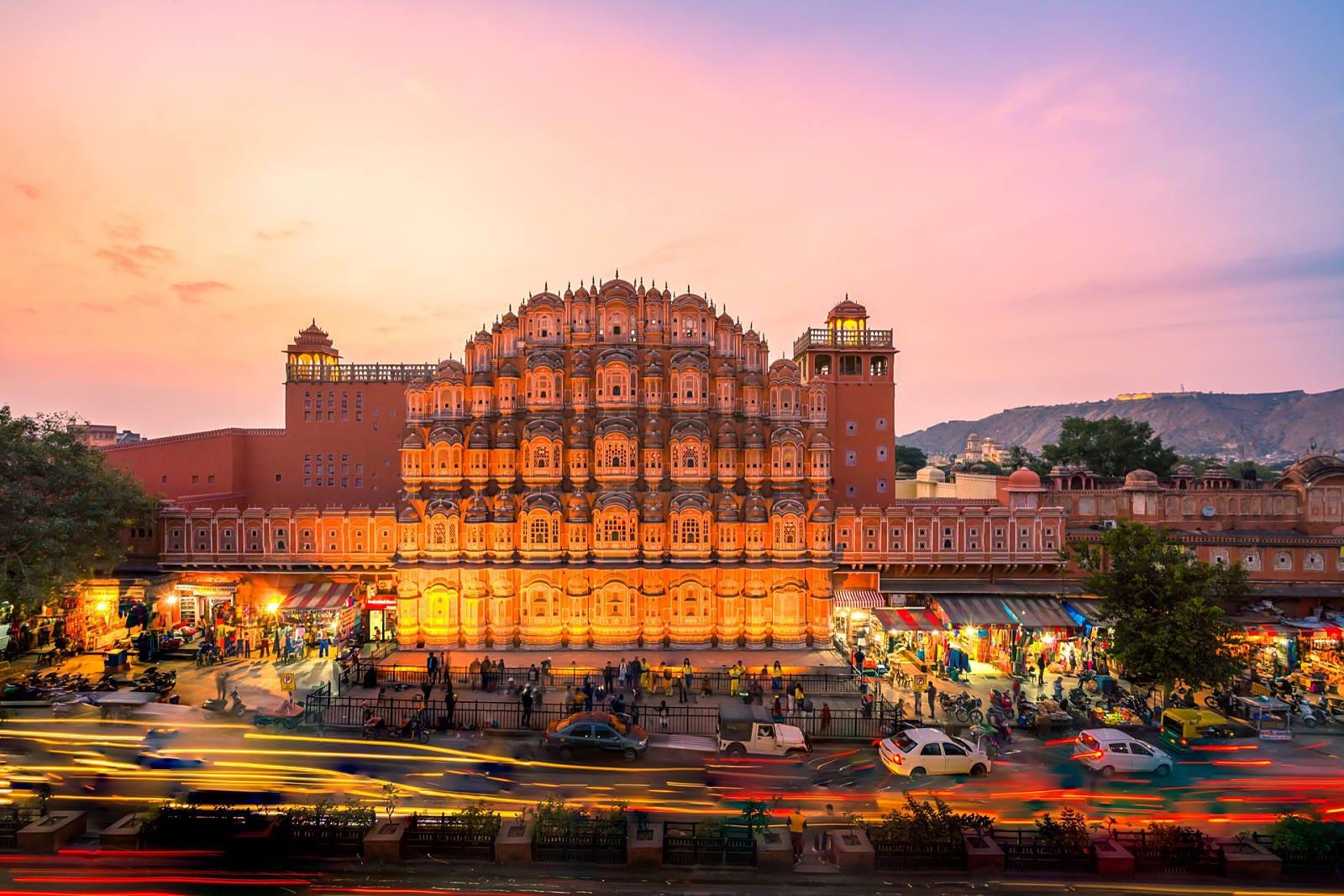Whether you're a history buff, architecture enthusiast, or cultural traveler, Heritage Tourism in Rajasthan promises a journey into the heart of Rajput valor, Mughal elegance, and timeless traditions Rajasthan, the “Land of Kings,” is a living museum of India’s royal past. With its towering forts, opulent palaces, intricately carved havelis, and centuries-old temples, the state offers one of the richest heritage tourism experiences in the world..
🗺️ Why Rajasthan Is India’s Heritage Heartland
-
Over 30 major forts and palaces, many UNESCO-listed.
-
Historic cities like Jaipur, Jodhpur, Udaipur, and Jaisalmer.
-
Living traditions in music, dance, crafts, and cuisine.
-
Heritage hotels that let you live like royalty.
-
Festivals and fairs that celebrate centuries-old customs.
Rajasthan’s heritage is not just preserved—it’s performed, lived, and celebrated daily.
🏯 Iconic Heritage Destinations
1. Jaipur – The Pink City
Founded in 1727 by Maharaja Sawai Jai Singh II, Jaipur is a planned city of palaces, forts, and vibrant bazaars.
-
Amber Fort: A blend of Rajput and Mughal architecture.
-
City Palace: Still home to the royal family.
-
Hawa Mahal: Iconic façade with 953 windows.
-
Jantar Mantar: Astronomical observatory and UNESCO site.
Jaipur is also known for its block printing, blue pottery, and royal festivals like Teej and Gangaur.
2. Udaipur – The City of Lakes
Udaipur’s romantic charm lies in its lakeside palaces and whitewashed havelis.
-
City Palace Complex: Overlooking Lake Pichola.
-
Jag Mandir & Lake Palace: Floating palaces with cinematic beauty.
-
Bagore Ki Haveli: Folk museum and dance performances.
-
Saheliyon Ki Bari: Garden of royal maidens.
Udaipur’s heritage is best experienced through boat rides, palace stays, and sunset views.
3. Jodhpur – The Blue City
Dominated by the mighty Mehrangarh Fort, Jodhpur is a city of warriors and artisans.
-
Mehrangarh Fort: One of India’s largest and most well-preserved forts.
-
Umaid Bhawan Palace: A functioning royal residence and luxury hotel.
-
Jaswant Thada: Marble cenotaphs of Marwar rulers.
-
Clock Tower & Sardar Market: Bustling heritage bazaar.
Jodhpur’s blue houses and desert backdrop create a stunning visual palette.
4. Jaisalmer – The Golden Fortress
Rising from the Thar Desert, Jaisalmer Fort is a living fort with homes, shops, and temples inside.
-
Jaisalmer Fort: UNESCO World Heritage Site.
-
Patwon Ki Haveli: Ornate merchant mansions.
-
Salim Singh & Nathmal Ki Haveli: Architectural marvels.
-
Sam Sand Dunes: Camel safaris and desert camps.
Jaisalmer’s golden sandstone glows at sunset, making it a photographer’s paradise.
5. Bikaner – The Camel Capital
Known for its desert architecture and royal legacy.
-
Junagarh Fort: Never conquered, richly decorated interiors.
-
Lalgarh Palace: Indo-Saracenic masterpiece.
-
Karni Mata Temple: Famous for its sacred rats.
-
Rampuria Havelis: Red sandstone merchant homes.
Bikaner also hosts the Camel Festival, a vibrant showcase of desert culture.
🏨 Heritage Hotels: Live Like Royalty
Rajasthan pioneered the concept of heritage hotels, converting palaces, forts, and havelis into luxurious stays.
Notable Heritage Properties:
-
Taj Lake Palace, Udaipur
-
Rambagh Palace, Jaipur
-
Umaid Bhawan Palace, Jodhpur
-
Narain Niwas Palace, Jaipur
-
Rohet Garh, near Jodhpur
These properties offer vintage décor, royal cuisine, and curated cultural experiences.
🎭 Cultural Heritage Experiences
Folk Music & Dance
-
Kalbeliya: Snake dance from Jaisalmer.
-
Ghoomar: Graceful group dance from Udaipur.
-
Bhavai: Balancing acts and storytelling.
Handicrafts
-
Block printing in Jaipur.
-
Bandhani tie-dye in Jodhpur.
-
Stone carving in Jaisalmer.
-
Miniature paintings in Udaipur.
Festivals
-
Pushkar Camel Fair
-
Desert Festival, Jaisalmer
-
Elephant Festival, Jaipur
-
Mewar Festival, Udaipur
These events showcase Rajasthan’s living heritage through music, dance, crafts, and rituals.
🧭 Suggested Itinerary: 10-Day Heritage Trail
Day 1–2: Delhi arrival and sightseeing
Day 3–4: Jaipur – forts, palaces, and bazaars
Day 5–6: Jodhpur – Mehrangarh and heritage walks
Day 7–8: Udaipur – lakeside palaces and folk shows
Day 9–10: Jaisalmer – desert fort and camel safari
Optional extensions: Bikaner, Bundi, Chittorgarh, or Shekhawati.
🗓️ Best Time to Visit
-
October to March: Pleasant weather and peak festival season.
-
April to June: Hot but good for budget travel.
-
July to September: Monsoon; lush landscapes but limited desert access.
💰 Travel Tips
-
Book heritage hotels and safaris in advance.
-
Dress modestly for temples and royal sites.
-
Hire local guides for deeper historical insights.
-
Support artisans by buying authentic crafts.
-
Respect local customs and photography rules.
✨ Conclusion: Rajasthan—Where History Lives On
Heritage tourism in Rajasthan is not just about monuments—it’s about stories, traditions, and immersive experiences. Whether you're walking through a centuries-old fort, dining in a palace courtyard, or watching a folk dance under the stars, Rajasthan invites you to live its legacy. For those who seek history with heart, Rajasthan is India’s most regal chapter.



